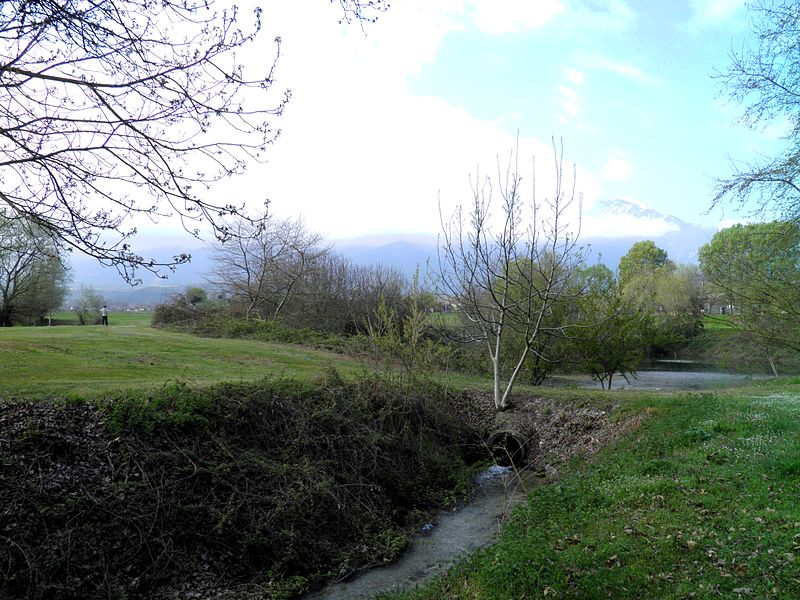Perhaps the most famous name in the West associated with metamorphosis is the Roman poet, Ovid. His great epic work, known as The Metamorphoses, contains the largest collection of Greco-Roman myths in existence to this day. Ovid took great delight not only in retelling these stories, but doing so in a way in which he changed some element of the story as it was popularly known at the time. To make matters more intriguing, Ovid often set his stories in or near a sacred grove. These groves were most often Greek settings, and we know quite a lot about the location and function of sacred groves in ancient Greece. Perhaps this description may suggest itself as a metaphor for our living:

Sacred grove of Dion with Mount Olympus in the background. Spring where the Sacred Grove of the Muses once was. Photo used with permission.
The sacred grove always sat on a hillside. In the valley or flatter land below was all the land domesticated by human beings: farms, pasture lands, cities and towns, clusters of dwellings for human beings, even domesticated groves of fruit trees. To the other side of the grove were the untouched, wild forests and often mountains where the Divine Ones dwelt. At various intervals during the year on days sacred to the Divine Ones, people would gather some produce of their domesticated lives: flowers, grain, fruit, vegetables, or even young animals, and journey up to the sacred grove. There, they would sacrifice their gifts to the Divine Ones and thereby, once again, remember.
They remembered from where they came. They remembered that all things domesticated were, in fact, once part of the Wild Divine. They remembered that domesticated life was temporary and a gift of the Wild Divine. They remembered that they would, one day, forever return to the Wild Divine. Each trip to the sacred grove, through the sacrifice of some part of their domesticated lives, these ancient people experienced a change that reminded them of who they really were.
What if, for today, we allowed anything that feels like a sacrifice (of time, of space, of money, of love, of any other attachment) become a moment to remember who we are and what our lives are made of? Would we not also experience our own little metamorphosis? Would these places not be a temporary sacred space to us?
Bob Patrick
